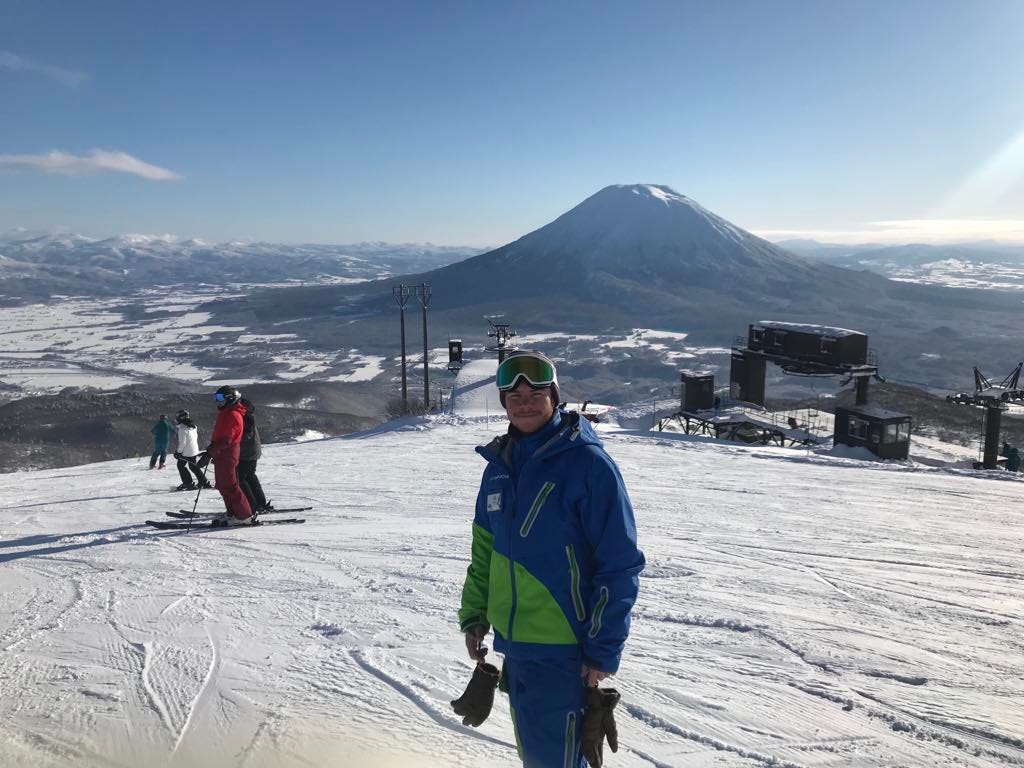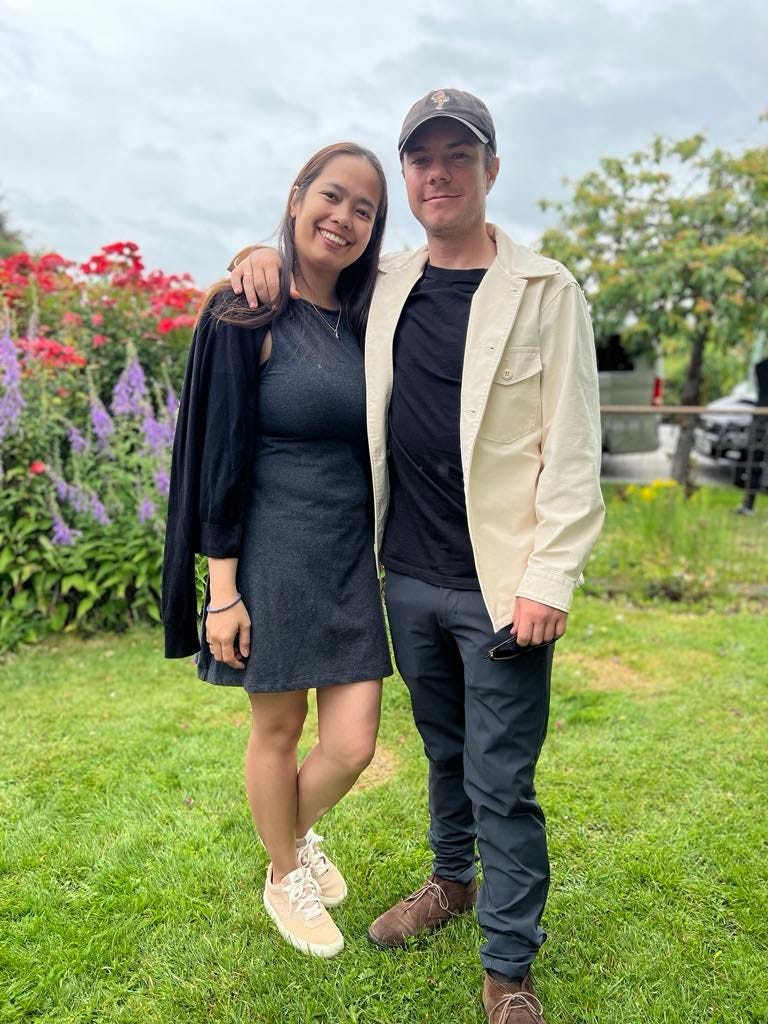The Zone of Proximal Development
It’s been roughly ten months since I returned from my holiday job in Japan as a ski instructor, and decided I wanted to commit myself to writing on Substack. “By the end of year”, I told myself, “you’ll know if you’re actually crap.”
Not that being crap would stop me.
A few years earlier, as I was about to embark on my journey Eastward to the nearest city, leaving my previous life in the rugged but comforting mountains behind, I met with a high performance life coach.
The pretence of the discussion was my return to University, the place where nearly a decade earlier, I’d somehow achieved a Bachelor of Arts in Philosophy and Art History, despite spending most of my waking hours drunk, high, or both.
But I didn’t need any ‘advice’ about my return. I knew this time I wouldn’t screw around (as much). So, I flipped the conversation, and started asking him questions.
He had been a CEO of two companies, before retreating from society for several years to become a monk. After five years, he returned as a mental skills coach for some of the most successful people in the county. Of course, he was intelligent, creative, and conscientious, but sitting in front of me, flattened by the low-ceiling, he appeared incredibly normal: Just another bro in a suit drinking a flat-white.
As I asked about his dramatic life changes, he had been suppressing a smile, “What do you want to be?” He asked.
Was it that obvious? I sighed, and told him my dream. Along the way, he kept repeating variations of the same question, “Do you believe you can do it?”, “Are you good enough?”
He shared later why he’d asked those questions: Most self-help guides mention the fear of failure as one of the main reasons people do not attempt to achieve their goals. What they leave out is that this fear is mediated by self-belief.
It was his way of explaining the Zone of Proximal Development, the ideal ‘learning gap’ between an individual’s current ability and whatever it is they are practising or learning. A gap too small and they don’t learn. A gap too big and they also don’t learn.
The Zone of Proximal Development is often applied in classroom settings. To teachers, it can become clear the gap is off: A child is either bored by the simplicity, or confused by the difficulty. Ideally, the teacher would then adjust the level to fit within the proximal zone.
Yet as we grow and enter the world, we lose ‘the teacher’, the external mind who can return us to the proximal zone. If we don’t find other mentors, we can lose awareness of where our proximal zone should lie. It happened to me.
Most people without self-awareness of their proximal zone suffer from not challenging themselves enough: The gap is too small. They rationalise why they cannot attempt something grander, more complex, their growth flatlines and they become stagnant.
I was the other kind.
Without any official training or guidance in writing (my final year school subjects were Fine Art, Printmaking, History, Classics, and Calculus), I had taught myself by writing Halo or Warhammer 40K fan-fiction, or writing my own science-fiction. But it was bounded - I was yet to read the classics, develop my sense of ‘taste’. I just thought writers came up with cool, interesting stories, and I enjoyed writing and that was about it. Without realising it I was keeping myself within my proximal zone. My ambition was tempered.
Philosophy screwed it all up.
As I was to learn in my first foray into tertiary education, writers can become legends. Indeed, they can transcend death. No longer mere ‘creative talents’, their words can become foundations for cultures, for civilisations. No way? I thought, I could be that, right?
Right?
Without an external mind to keep me within my proximal zone, my ambition ran rampant. Grandeur consumed the 18-year old drug addict, and for years I assumed my writing would transcend my own death, I would become immortal. And in this life, surely, I would be adored by millions, my own country, the entire West!
But I didn’t write. Ever.
When we learn and achieve something, we become something. Our identity changes. If the zone is just right, we will not notice the ‘becoming’. We will not notice our identity changing, until one day it feels right to shirk the ‘beginner’ identity for the ‘novice’ and so on. We are growing.
If the zone is too great, the identity we wish to become is unattainable: My current identity was ‘beginner’ and my destination identity was ‘demi-god’. Beside from ‘demi-god’ being ridiculous, there was no intermediary steps.
On the surface, I had told myself this gap was crossable. Underneath, my subliminal self knew the truth. It brewed a fear relative to the identity I was supposed to embody. My first work of creative fiction or philosophy, as a drugged-out late-teenager/early twenties something New Zealander, was supposed to meet the quality of Dostoevsky, Hemingway, or Orwell. Anything less, by definition, was a failure.
Not only did I lie to myself that I could go from barely writing at all, to writing a classic that all will remember, but perhaps even more pernicious, was the lie that I wasn’t even afraid of doing it, I was just ‘biding my time’.
Yet as the years waned, as the drugs got more boring, the subliminal self punched from below on the frozen lake that was my conscious perception, and finally, when I was about twenty-four, it cracked the ice. I had a quarter-life crisis.
The illusions melted all around me. I wanted to be a writer but I never practised. I was likely terrible, no better than a part-time high school student. Worse still, I had told everybody that I was going to be a ‘novelist’, a ‘philosopher’. God, I wonder what my parents thought. What an idiot.
It took a couple of years, but over time, with the help of abstinence, I began to write short stories, essays, whatever - most of them were at the level of a traumatically brain injured five year old, but hey, at least I was doing something. My goals reoriented and became realistic.
By the time I met with the mental skills coach, I told him it didn’t matter what happened, as long as I kept writing. I would be more than content with passing into the next realm if I knew I never gave up on my dream.
I had tears in my eyes.
In the years preceding Substack, I kept writing. Random short stories and essays. Occasionally I would show them to friends. I joined a writers group of mostly old women and researched ways of independently publishing your work.
Enter Substack.
I mostly lurked and read, only posting a couple of times the first year or so. The fear, of all those years ago, had flipped: Previously it was generated by unbounded ambition, having to live up to being a demi-god; now I was afraid of posting because it would make real my faults as writer - and force me to become better, try different and more complex things. The proximal zone had become too small.
Screw it, I thought, as I returned from Japan, by the end of the year you’ll know if you’re actually crap.
I started posting multiple times a month, with the goal of making it to 100 subscribers - a ‘proof of concept’. While still in Japan, I posted my Tokyo travel experiences.
In April, I posted my first piece that got attention from outside my friends and family, a impassioned riposte of using artificial intelligence in one’s creative pursuits.
I followed it up with an essay about how as art lovers within the micro-culture and indie publishing world, we need to consume with intention - and mature from the days of illegally downloading and pirating creative work online.
Given my PhD was on the psychological effects of free speech and expression, I exposed the character flaws of those who enjoy censoring and cancelling - the passive aggressive extraordinaires of the radical left.
I passed my subscriber goal in July, some five months before the end of the year. I then posted my most popular piece, the true story of how I got fired from a ridiculous job as a ‘loss prevention specialist’ - essentially a secret shopper who catches thieves in supermarkets.
Last month, I wrote once more about the university, with data confirming my belief that New Zealand tertiary institutions follow the US and UK in their demographic breakdowns - students and staff are majority left-wing. And not just ‘left-wing’, but far-left.
In November, I passed the new goal I had set myself: 200 subscribers. As December begun, I had started my own podcast - with the help of
.As I write this on Boxing Day, after having one of the most wonderful and eventful Christmases of my life (someday I’ll share the fateful story of what happened on Christmas day, 2024, when I more than lived up to the ‘Delinquent’ in my pseudonym), I am extraordinarily grateful there are at least some people that enjoy my writing.
I am living my dream.
To the new friends I’ve made digitally on the platform who like, comment, and restack my work (it helps so much), to the old friends who I haven’t seen in a decade who have called me up to tell me how much my work has moved them, to the dear reader who opens my emails to see what nonsense the ‘Delinquent Academic’ has to say, I thank you.
Even more so, I want to thank my family, those friends of mine that have given me tireless feedback and marketing advice, and of course, the new love in my life. The supports is as much validation one needs they are walking the right path.
Merry Christmas and Happy New Year!
Thank you all for reading!
Given the effort and time I put in each article, combined with the fact that some have attempted to shut down my Substack by going after my other dream of becoming a clinical psychologist, I’ve decided in 2025 I will be ‘going pro’ - shifting some of my articles behind a pay wall.
Paying subscribers will get access to both my longer investigative pieces that I’ll leave free, and shorter, more opinionated, ‘from the heart’ pieces that will be likely spicier and/or more wholesome. In the future, I’ll add to what paying subscribers get. I really want to create a community of like-minded people sharing ideas and projects with each other, all here to create a better world for future generations.
If this is attractive to you, or my work has moved you positively in some way, consider upgrading. Subscriptions will be half-price for January, and barely the price of your morning coffee.
You can also give me a tip as another way to support me.
Chur, and have a good day and night,
The Delinquent Academic













Sounds like over complicating a simple matter. But then, I'm speaking from hindsight, looking back over a lifetime. Sigh.
Merry Christmas and Happy New Year's, my friend. I look forward to the day when you spin your yarn of how you lived up to your delinquency.